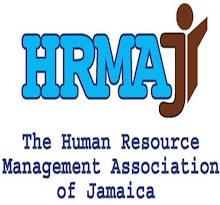Before beginning your resume, take some time to think about why you are writing it and what it is for. A resume is a professional document intended to present to a potential employer the reason why you should be hired for that job. It however is NOT a biography or a summary of your life’s history.
The Rockport Institute, who has helped individuals to successfully choose their career paths since 1981, describes a resume as an advertisement, “nothing more, nothing less”
“A great resume doesn't just tell them what you have done but makes the same assertion that all good ads do: If you buy this product, you will get these specific, direct benefits. It presents you in the best light. It convinces the employer that you have what it takes to be successful in this new position or career.”- (How to Write a Masterpiece of a Resume Part 1)
This advertisement must be skillfully crafted to achieve its one goal… to get you an interview. This ad must also be able to impress the reader within less than a minute. HR Managers face hundreds of resumes and cannot thoroughly read through every one. It is therefore imperative that at a quick glance your resume can stand out from the pack.
Writing the Resume
When beginning to write a resume you may want to consider jotting down your points first. Take the time to identify all the aspects of your character, goals and accomplishments that you will want to include. Look for key words and action phrases to best describe you and how you can contribute to the organization.
Your resume should have a direct focus. Keep in mind that just like advertising a resume is directed to a specific audience and intended to grab and maintain attention. The focus of your resume should be clearly defined from the onset. This presents you as a person who is secure in their personal goals and who uses their energy productively to achieve them.
After the contact information the first item on your resume should be an Objective. This objective can grab their attention or send it elsewhere. While most persons craft a vague objective which speaks to their overall goal in life, your objective can be tailored to each organization that your resume is sent to. It should be concise and clear about your career direction. If this resume is being sent in response to an advertisement, the employer may have made known in the ad the qualities they are looking for. The objective is very useful for establishing which of those qualities you possess, which would make you stand out amidst other candidates. Not every objective will be this specific and some may still be broad and undefined. The key however is to remember that the employer is looking for someone who will be of benefit to them rather than aiming to fulfill your personal life goals.
Here are some examples to consider:
• Senior staff position with a bank that offers the opportunity to use my expertise in commercial real estate lending and strategic management.
• An entry-level position in the hospitality industry where a background in advertising and public relations would be needed.
• A position teaching English as a second language where a special ability to motivate and communicate effectively with students would be needed.
Another element to consider is the layout of your resume. Traditional methods would place qualification and education as the first element of the resume. The functional method dictates placing education information in the second half of the resume. The functional method is more commonly used because it presents immediately the information the reader wants to know: what you can do for them. While your education is important and mandatory for a resume, your education or qualification simply verifies your accomplishments, qualities and skills.
With the right resume you will be on your way to landing a job and with these tips you are on your way to a great resume. Below is some more advice for writing winning resumes:
1. Do NOT :
a. Lie
c. Include a photograph unless requested
d. Use fancy fonts or graphics
e. Use personal pronouns (“I”, “me”)
f. Title your resume as “Resume”. Start with you full name
g. Use an unprofessional email address (eg. sexy_hotchic@gmail.com)
a. Ask a friend or two to proofread your resume
b. Check for grammatical, typographical, punctuation errors
c. Use contact information that you can actually be reached at.
d. Keep it short, no longer than 2 pages.
e. Maintain consistency in the use of fonts and headings.
f. Highlight strengths and de-emphasize weaknesses
Fore more tips: http://www.rockportinstitute.com/resume_03
Join in the discussion and tell us where you stand. It begins with us, it begins right here.
Human Resource Management Association of Jamaica
“Enhancing the value of human capital for growth and development”



Resume is one of the most fundamental tool of the job seekers..so take time and care to develop best resume.
ReplyDeleteResume Examples
Excellent link Maddy! This should be helpful for our student chapter where many University graduates will be seeking jobs.
ReplyDelete"A resume is a valuable part of every interview so it has to be perfect literally. If you need help with it, follow the link tips how to proofread your resume like a professional
ReplyDelete